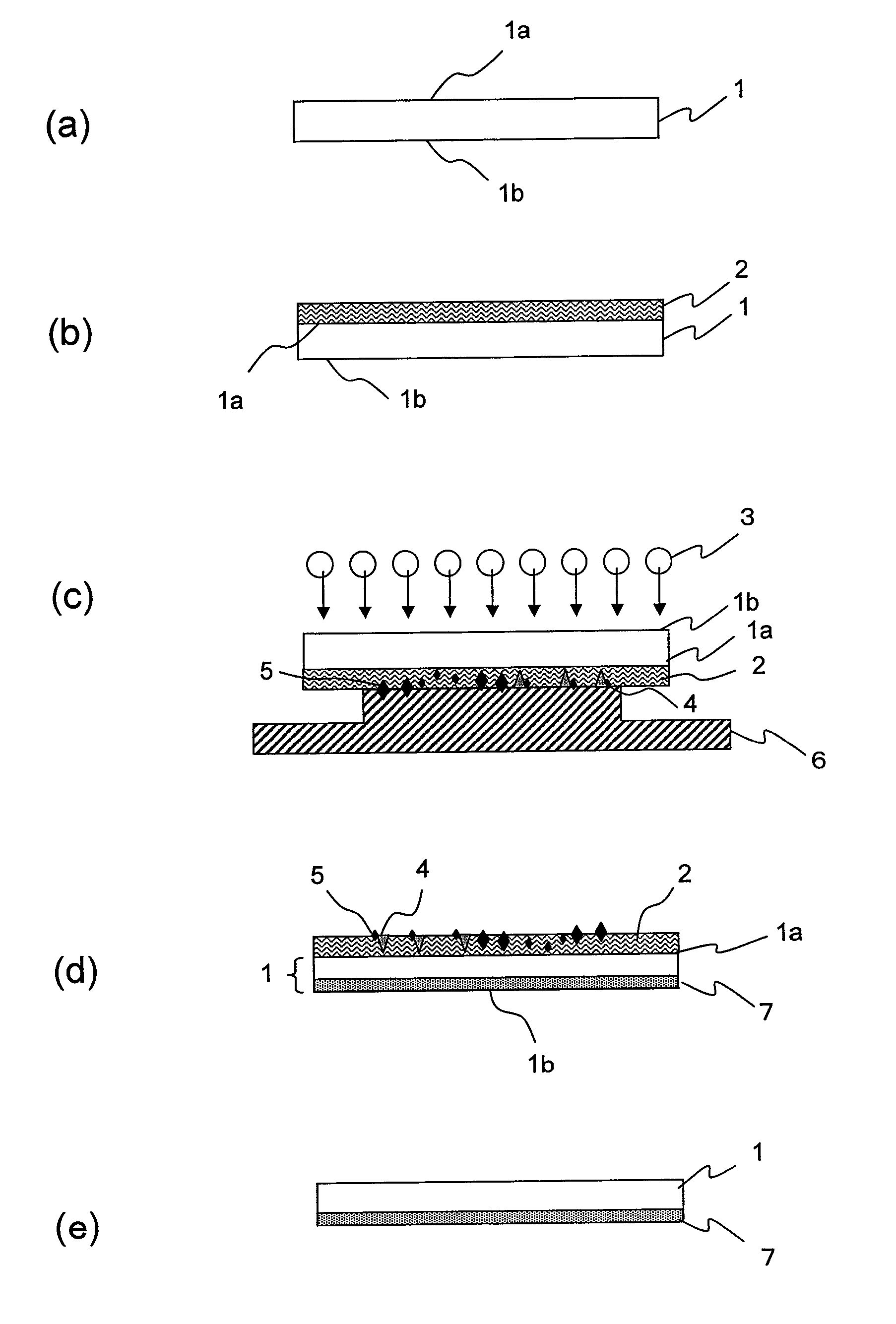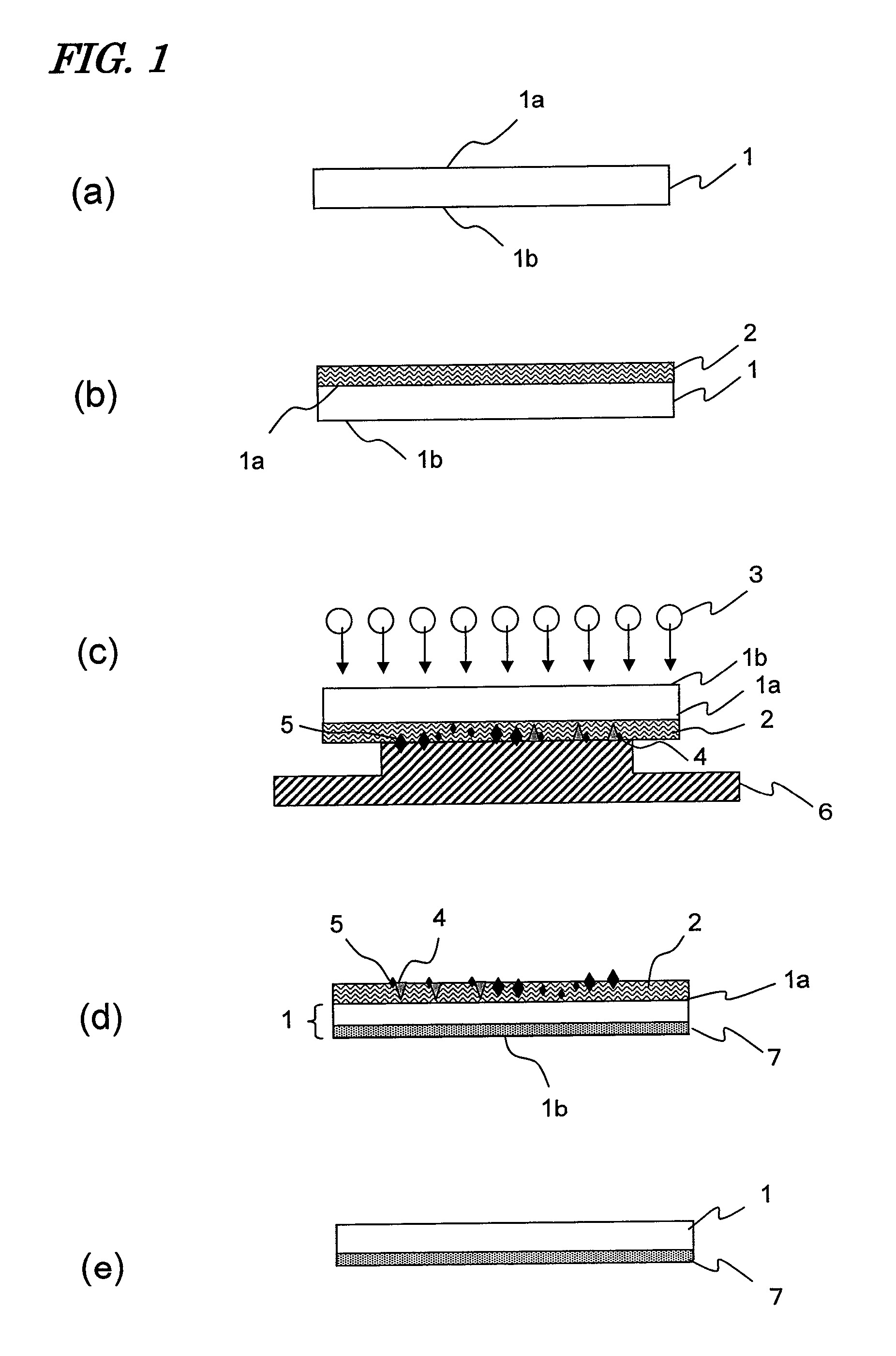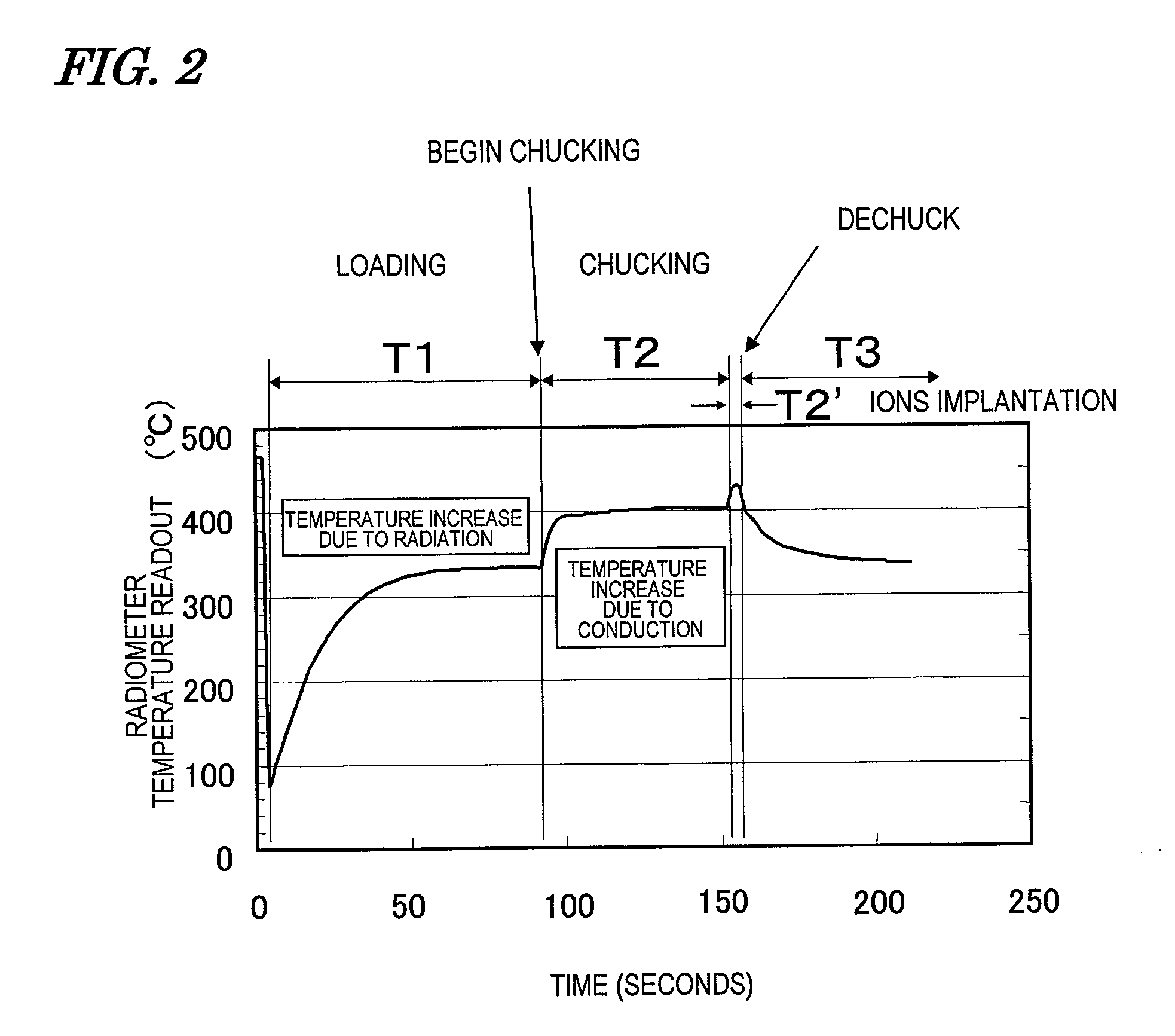Method for manufacturing semiconductor device
a semiconductor device and production method technology, applied in the direction of liquid surface applicators, electric discharge tubes, coatings, etc., can solve the problems of low throughput, poor mass producibility, and high temperature of ion implantation, so as to reduce the formation of defects.
- Summary
- Abstract
- Description
- Claims
- Application Information
AI Technical Summary
Benefits of technology
Problems solved by technology
Method used
Image
Examples
first embodiment
[0095]First, a first embodiment of a production method for a semiconductor device according to the present invention will be described. In the present embodiment, an Si wafer is used as a semiconductor wafer.
[0096]With reference to FIG. 1, a production method for a semiconductor device according to the present embodiment will be described. FIGS. 1(a) to (e) are cross-sectional views showing a flow of steps of the present embodiment.
[0097]First, as shown in FIG. 1(a), a plurality of semiconductor wafers 1 each having a first face (principal face) 1a and a second face (rear face) 1b were provided. Each of the semiconductor wafers 1 used herein was an n type Si wafer having a diameter of 3 inches, with a specific resistance of 10 to 20 Ω·cm. Thereafter, as shown in FIG. 1(b), a protection film 2 was formed on the first face 1a of the semiconductor wafer 1. Specifically, four semiconductor wafers 1 having four types of different protection films 2 deposited on the first face 1a thereof,...
second embodiment
[0125]Hereinafter, a second embodiment of a production method for a semiconductor device according to the present invention will be described. In the present embodiment, the attracting face of the electrostatic chuck is made of pyrolytic boron nitride (pBN). pBN is a material with a layered structure, and is a material whose hardness is significantly lower than that of AlN.
[0126]The temperature of the attracting face of the electrostatic chuck was set to 460° C., similarly to the first embodiment. In the present embodiment, the following seven different types of semiconductor wafers were provided.[0127](E) an Si wafer lacking a protection film[0128](F) an Si wafer with SiO2 (thickness 1 μm)[0129](G) an SiC wafer lacking a protection film[0130](H) an SiC wafer with SiO2 (thickness 1 μm)[0131](I) an Si wafer with SiO2 ((thickness 0.1 μm)[0132](J) an SiC wafer with SiO2 ((thickness 0.1 μm)[0133](K) an SiC wafer with poly-Si (thickness 800 nm) / thermal oxide film (thickness 70 nm)
[0134]E...
third embodiment
[0151]Hereinafter, a third embodiment of a production method for a semiconductor device according to the present invention will be described. In the present embodiment, a vertical MISFET of silicon carbide semiconductor is produced.
[0152]First, FIG. 7 is referred to. FIGS. 7(a) to (h) are step-by-step cross-sectional views showing production steps of a vertical MISFET of silicon carbide semiconductor according to the present embodiment.
[0153]In the present embodiment, the chuck surface of the electrostatic chuck 6 is made of pBN, and the setting temperature of the electrostatic chuck 6 is 460° C.
[0154]First, as shown in FIG. 7(a), a semiconductor wafer 1 is provided in which a drift layer 102 of silicon carbide is epitaxially grown on a silicon carbide substrate 101. In the present specification, in the case where a semiconductor layer is formed on the surface of the semiconductor substrate, the entire body will be referred to as the “semiconductor wafer”. A first face 1a of the sem...
PUM
 Login to View More
Login to View More Abstract
Description
Claims
Application Information
 Login to View More
Login to View More - R&D
- Intellectual Property
- Life Sciences
- Materials
- Tech Scout
- Unparalleled Data Quality
- Higher Quality Content
- 60% Fewer Hallucinations
Browse by: Latest US Patents, China's latest patents, Technical Efficacy Thesaurus, Application Domain, Technology Topic, Popular Technical Reports.
© 2025 PatSnap. All rights reserved.Legal|Privacy policy|Modern Slavery Act Transparency Statement|Sitemap|About US| Contact US: help@patsnap.com



